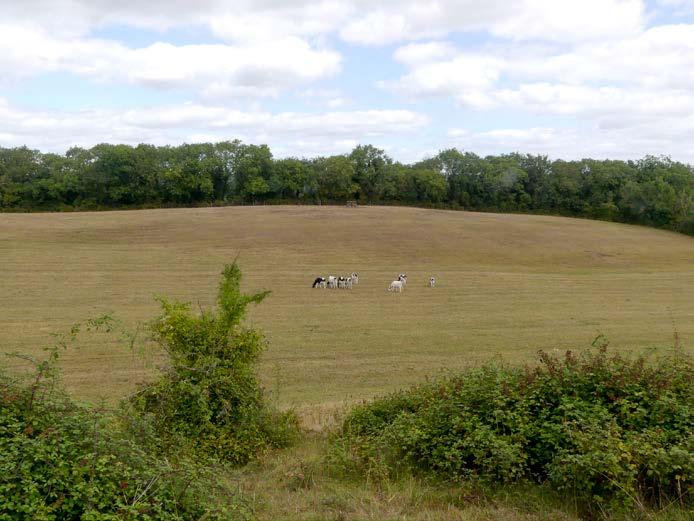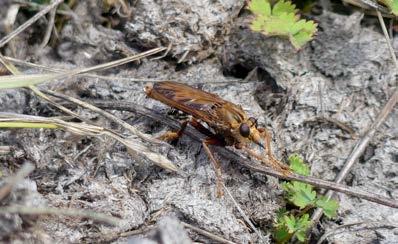
2 minute read
Decision to Ban Dogs from Brockwells Meadows
By Nature Recovery Manager Rick Mundy
We have recently made the difficult decision to exclude dogs from our Brockwells Meadows reserve. This is the second of our reserves where we have decided that dogs will not be allowed, the first being Magor Marsh, the third, when it formally opens to the public later this year, will be Bridewell Common.
Advertisement

We understand how popular dogs are in our society, they are part of our lives and part of our families, and we are aware of the close association that many people feel between their dogs and the great outdoors. Many people’s enjoyment of the countryside is greatly reduced if they are not able to bring their dog out with them. Indeed, for many people, the motivation for getting out and about is to walk the dog. Our existing policy that dogs are allowed on our reserves, but must be kept on a lead, reflects this understanding. However there are strong arguments against allowing dogs on our nature reserves.
It is important to appreciate that a dog is a predator, to wildlife it looks, smells and sounds like a wolf. Having predators around presents a very obvious problem if you’re a wild animal: you, or your young or your eggs might get eaten. This potential ‘direct’ effect of dogs on wildlife is what is behind requests to keep dogs on leads, and if owners behave responsibly and follow the rules, these measures should be largely effective. But unfortunately, this direct effect is just the tip of an iceberg of less obvious ‘indirect’ effects that dogs can have, many of which come under the general term ‘disturbance’.
There is strong evidence that wild animals that share their space with dogs are in a state of constantly elevated stress.
We are becoming increasingly aware of the problems caused to human health by chronic stress and stress has the same effects on animals. A number of scientific papers have been published that demonstrate elevated cortisol levels, reduced populations, reduced breeding success and reduced body condition in birds and mammals that live in places where dogs are frequently present.
‘Conservation grazing’ livestock animals are essential to maintain species-rich grasslands and other habitats on our reserves and dogs can cause problems for these animals as well, two pregnant ewes were killed by pet dogs on our Great Traston Meadows reserve last summer for example. Poorly controlled dogs not only chasing and upsetting the young cows that graze Brockwells Meadows reserve, but also potentially putting their human companions at risk by causing the cattle to stampede, is one of the main triggers for our decision to exclude dogs.
A less obvious issue can be caused by the medicines that we use to keep our pets healthy, such as flea treatments containing neonicotinoids and wormers containing avermectins. One of the important species at Brockwells Meadows is the hornet robberfly. It lays its eggs in dung and if this contains avermectins they cannot survive. NRW do not allow avermectin use on the cattle which graze the reserve but dogs treated with the same wormers could potentially introduce these chemicals.
As a wildlife charity, wildlife must always be our first priority. Our members, our funders, our partnership organisations, and our trustees expect this, and the wellbeing of the wildlife on our reserves can’t be compromised. If we become aware of a threat to one of our reserves, be it from dogs or anything else, we have to make an evidence-based and rational decision and act. In the case of Brockwells Meadows, the combination of disturbance to the cattle, the risk to human health and safety of stampeding cattle, and the potential for avermectins to be introduced, has been enough for us to decide that dogs need to be excluded.











